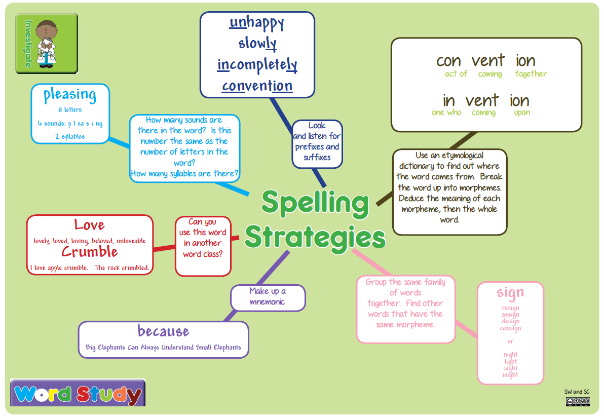Outstanding Oak Class
Welcome to Outstanding Oak Class
- Teacher: Mrs Galloway
- Teaching Assistant: Miss Cobb/Mrs Ferguson
National Curriculum Spellings for Year 5 and 6. How many can you spell?
Year 5 and Year 6 word lists
|
Term |
Year 5 words |
Year 6 words |
|
Autumn Term 1 |
Ough Cious tious advice, advise device, devise licence, license practice, practise prophecy, prophesy |
Words with silent letters: knight, solemn, thistle, doubt, island, lamb compliment, complement, descent, dissent |
|
ous suffix: disastrous, marvellous, mischievous I spelled le: available, vegetable, vehicle, muscle tion suffix: competition, explanation, profession, pronunciation |
amateur, average, awkward, bargain, controversy, curiosity, develop, forty, guarantee |
|
|
Autumn Term 2 |
Tial and cial endings i before e rule farther, further, father guessed, guest heard, herd led, lead morning, mourning past, passed |
desert, dessert, draft, draught |
|
i before ee: achieve, convenience, mischievous s spelled c before e, I and y: cemetery, conscience, conscious, criticise, excellent, existence, hindrance, necessary, prejudice, sacrifice |
harass, hindrance, identity, individual, interfere, interrupt, language, leisure, lightning |
|
|
Spring Term 1 |
Words ending with: ant, ance, ancy, ent, ence, ency precede, proceed principal, principle profit, prophet stationary, stationery |
muscle, neighbour, persuade, programme, queue, recognise, relevant, restaurant, rhyme, rhythm |
|
Words with unstressed vowels: accommodate bruise, category, cemetery, definite, desperate, dictionary, embarrass, environment, exaggerate, marvellous, nuisance, parliament, privilege, secretary, vegetable |
||
|
Spring Term 2 |
Suffixes beginning with vowels to words ending fer: referring, referred, referral steal, steel wary, weary who’s, whose aisle, isle aloud, allowed affect, effect |
shoulder, signature, stomach, temperature, twelfth, vegetable, vehicle, yacht |
|
Short i spelled y: physical, symbol, system Words with prefixes and suffixes: according, attached, criticise, determined, equipment, equipped, especially, frequently, immediate, immediately, necessary, unnecessary, sincere, sincerely |
||
|
Summer Term 1 |
Ible able Ably ibly Use of hyphen: co-, re- |
Revise and consolidate learning of all year 5/6 words |
|
Words with double consonants: accommodate, accompany, according, aggressive, apparent, appreciate, attached, committee, communicate, correspond, immediate, occupy, occur, opportunity, recommend, suggest |
||
|
Summer Term 2 |
Suffixes beginning with vowels to words ending fer: reference, referee Long ee spelled ei eg perceive altar, alter, ascent, assent, bridal, bridle, cereal, serial compliment, complement |
Revise and consolidate learning of all year 5/6 words |
|
Adjacent ie: soldier, sufficient, variety, ancient No adjacent ie: foreign |
 You are learning to spell these words for two reasons. Firstly, they are words that are used regularly in your writing. Secondly, they have been identified as words that every child in your year group in the UK has to be able to spell.
You are learning to spell these words for two reasons. Firstly, they are words that are used regularly in your writing. Secondly, they have been identified as words that every child in your year group in the UK has to be able to spell.
Use your spelling strategy sheet to help you learn ways of remembering how to spell words.
Moving up to Secondary School - Tips for Year 6
-
Moving up to secondary school
You may have mixed emotions about moving to secondary school. Although you might feel a little bit nervous it can also be an exciting time.
You will go from being the oldest in school to being the youngest and have to find your way around a new school with different teachers for different subjects.

Tips for starting at a new school
Moving to secondary school can be scary, but there are things you can do to cope and help you feel positive.
Move up days
Go along to your new schools move up day, these take place at the beginning of July each year. This may be one day, but many schools offer two or more days along with summer holiday activities.
This will be the first time that you meet your new class and new teachers and explore the school.
Move up days are a good time to make new friends who you can talk to or meet during the summer holidays.
Plan how to get there
Being ready for how you're going to get to your new school can help you to feel more confident.
If your parent or carer is taking you, or you will use school transport, plan what you need to do to be ready on time.
If you are walking to school, make sure you know the way and practice the route during your summer holidays. Then you will know how long it will take you to get there and know what time to leave in the mornings.
Prepare what you'll need
It can take time to adjust when you start at a new school. There are lots of things you can do to make sure you are ready:
- ask if there is a map of the school so that you can find your way around
- find out what you need to take like pens, pencils, calculator, laptop, or sports equipment.
- make a note of your lesson timetable.
- write down your homework and when it's due so you don't forget.
-
Your new school might have different rules or expectations. If you're you are ever not sure, ask a teacher or someone you trust for help.
Ask questions
It can be scary when you don't know who to talk to at school if you're worried. Your teachers are there to help, but you can also ask the reception staff or the school nurse if you need support.
Some schools have pupils, sometimes called buddies, who are there to support you. If you don't feel comfortable asking for support at school, you can speak to your parents or carers or an adult you trust.
Making new friends
It's natural to feel scared about making new friends. Even if you’ve got lots of friends going to the same school as you.
Remember:
- it's scary going up to someone new but you'll gain more confidence
- it's good to smile
- if someone's friendly to you, try to be friendly back
- it can take time to make friends
- don't be hard on yourself if you freeze up - you can always try another time.
-
There are things to make things easier:
- lookout for other young people who have similar interests and hobbies as you
- use positive body language; smile, speak clearly, look people in the eye
- ask questions to start a conversation to find out about the other person, for example, favourite music or games, TV show or films
- say something nice, it can feel great getting a compliment
- join a club either inside or outside of school
- volunteer
-
Speak to your current school
You can always speak to your current school about any concerns you may have, and how they may be able to support you with the transition to your new school.
Book onto one of our free virtual or face to face courses
We run a number of courses for young people, including a 'Moving up to secondary school' course for Year 6's moving up to year 7. For dates and to reserve a space visit our help for young people page.
Course Feedback
Following these courses being previously run the following feedback was collected:
- 20 out of 25 gave the course five 5/5 for how well they felt listened to and included
- After attending the course none of the attendees felt as if they needed more support
- "I always had the chance to share my opinion and I wasn't judged"
- "I feel much more confident in making new friends, and in myself"
-
Resources that may help
Your primary school or new secondary school should give you more information either before or on move-up day.
Online
There are many online resources that can help. Here are a few that we suggest:
- BBC Bitesize- get the lowdown from Mr Burton and other young people
- Young Minds - finding your feet: transitioning to secondary school films and resources
- Anna Freud Centre - a film on moving up to secondary school
- Learning Disabilities - the move from primary to secondary can be difficult for young people with learning disabilities or special educational needs (SEN). Information can be downloaded in easy read format
- Home Start Slough Managing School Transition for Autistic Students in years 5 to 7. A guide for parents, autistic young people and educators.

